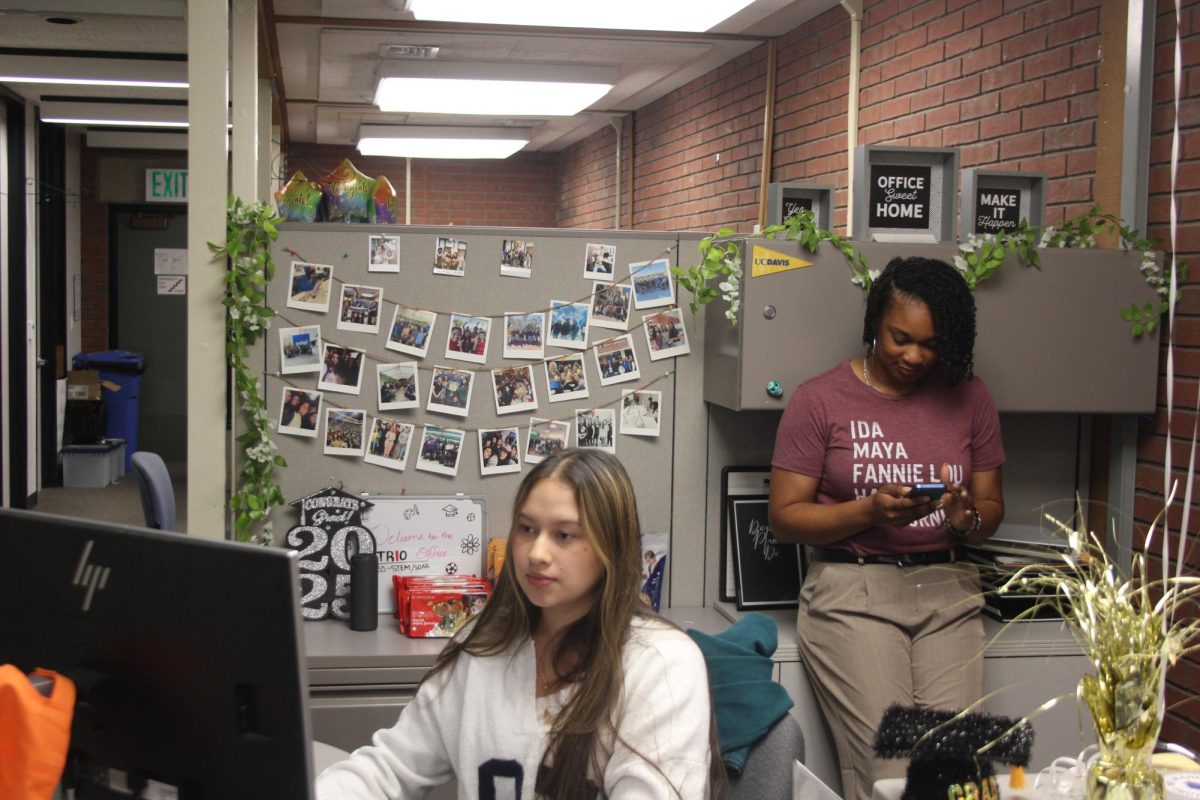The Trump administration calls for getting rid of all federally-funded TRIO services across the nation for the 2026 fiscal year, according to the Council for Opportunity in Education website.
TRIO is not an acronym. TRIO refers back to the original three programs that were formed under Title IV of the Higher Education Act and created the programs Student Support Services, Upward Bound and Educational Talent Search, according to the University of Montevallo.
Title IV of the Higher Education Act helps students that are a part of programs that specialize in helping students furthering their education get financial aid at certain qualifying institutions of higher education, according to the Congress.gov website.
Trinity Wilson, the director of TRIO, said the future of TRIO-related programs is starting to look worse after hearing about Trump's plans for TRIO programs.
“Taking away funding for TRIO programs impacts staff’s livelihood, also their choice to work the job that they wanted to work,” Wilson said.
Wilson said if they were to shift into a different position it takes away from their freedom and being put somewhere else isn’t something they’d anticipate.
Wilson said that people like politicians, college professors and actors have all benefited from TRIO resources.
“To take something away that has had clearly such a huge positive impact on people in their communities just seems like something they may not have done their due diligence on,” Wilson said.
Wilson said TRIO programs receive hundreds of millions dollars in funding each fiscal year which is distributed over the many different campuses that provide TRIO services, and to hear that Trump wants to make it zero is starting to worry her.
TRIO counselors and the director allow their students to come in at any time and grab a snack at no cost just by signing in, they’re given a box of Girl Scout cookies. TRIO also teaches their students to be financially literate through its services.
“We make sure that everything’s covered,” Wilson said. “If a student comes here, we’re making sure that you don’t have to pay for food. There’s nowhere where our students pay for absolutely anything.”
Wilson said that students who join the programs aren’t only looking for a community, but also guidance.
“They’re looking for people to support them academically and to support them in being able to figure out what the next step is once they finish their two-year education,” Wilson said.
Wilson said working as the director of the TRIO program has had some beautiful moments, one being the time she took her students on an airplane on a trip to Disneyland. She said for some of them, it was their first time and she was just happy to see her students happy.
“Now we’re getting to security and they’re just looking around like, ‘What’s going on?’ and ‘What do I do now?’ " Wilson said. “It was beautiful because it was this state of innocence.”
Melissa Sanchez, the director of MI CASA and the former interim director of Upward Bound, a service in TRIO that supports high school students in their future college careers, said it’s upsetting to think that after 60 years of students getting the help they need through TRIO, it might stop getting funded.
“These programs were born out of a need,” Sanchez said. “It took Congress and federal activists to get these programs working and with that being affected, these students won’t have this guide and well-guided process of getting them to success.”
The TRIO services provided at CRC include programs like SSS-STEM for students that are science, technology engineering and mathematics majors and SSS-SOAR for all other majors. The programs provide tutoring, campus visits, career prep, culture related activities, college success workshops and mentoring.
Wilson said the services are available to students who share or indicate they have a disability, are part of a low-income family, are a first generation immigrant or feel they are at risk for any reason.
Laili Naiem, the student support specialist for the TRIO program SSS-STEM, said the more voices in support of TRIO, the better.
“A lot of people in Congress, from what I read and looked up on the news, were actually TRIO alumni,” Naiem said. “So, they can actually attest to how important TRIO programs are.”
Naiem said she doesn’t think TRIO is going anywhere.
“I have a lot of hopes that TRIO is going to be around for a long time at CRC,” Naiem said. “I’m hopeful.”


Miguel • Jul 9, 2025 at 4:41 pm
I’m a TRIO alumni. It is vital for students who are low income, first generation trying to get an education
Saca Tetas • Jul 4, 2025 at 10:13 am
Save TRIO! As a 1st Generation student in the U. S. They guided me on how to get an education. It it was for them I’d be eating pan con pinga sandwiches. Thank you TRIO. Hope you survive